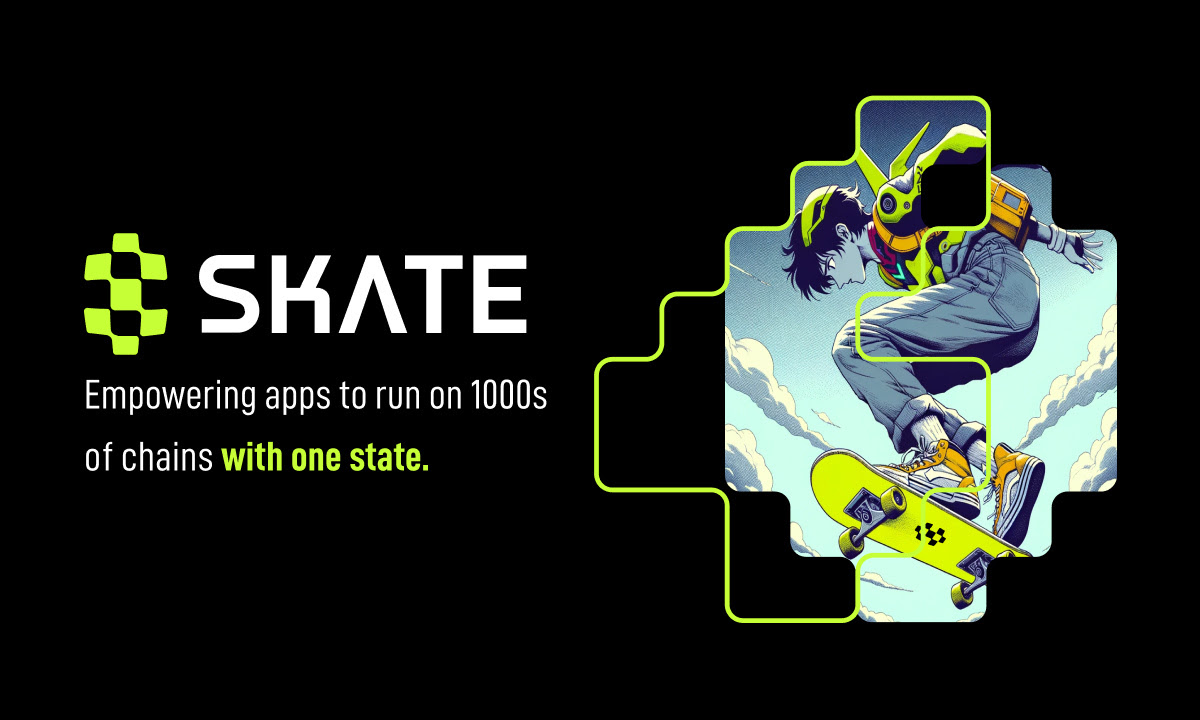ARTICLE AD BOX

Range Protocol, a unified liquidity provisioning platform, has announced the launch of Skate, a cutting-edge universal application layer that aims to revolutionize the Web3 space.
This new development signals Range protocol’s mission to empower sound decision-making and optimized strategies for the next generation of investors — with no intermediaries needed.
Skate’s development is backed by several leading founders in the web3 space, including EigenLayer, Polygon, Manta, Axelar, Pendle, A41, and Galxe. This collaboration underscores Skate’s vision to revolutionize web3 by solving the challenges posed by application fragmentation, thus paving the way for a more efficient and modular future.
Skate to Revolutionize Web3 Landscape
The launch of Skate marks a significant milestone in the quest to address the growing challenges of application fragmentation within the multi-chain ecosystem. By introducing the concept of a Universal Application Scope, Skate provides a centralized hub for deploying and maintaining essential applications across diverse chains, transcending the limitations of traditional Virtual Machine environments.
Notably, this approach not only streamlines the development process but also enhances the user experience by creating a fluid, interconnected ecosystem where transactions and information flow seamlessly between chains.
Following its design, Skate promises to usher in an era of unparalleled efficiency and interoperability by enabling applications to run on thousands of chains with a single state seamlessly.
Siddharth Lalwani, Co-Founder and CEO of Range Protocol emphasized Skate’s pivotal role in transforming the Web3 landscape, stating;
“The rise of modularity powered innovations such as improved throughput and reduced transaction costs. However, it also came with its own set of challenges, most notably application fragmentation. Skate introduces the concept of the Universal Application Layer, where essential applications are developed collectively and maintained in a shared pool accessible to all chains. This ensures foundational needs of builders and users are met efficiently, allowing each chain to focus on creating value-added services and laying the building blocks for a modular future.”
At its core, Skate represents a paradigm shift in application deployment, moving away from duplicating deployments towards a unified approach. By functioning as a centralized hub for deploying, developing, and maintaining smart contracts across diverse chains, Skate eliminates the need for developers to replicate efforts across different tech stacks.
Furthermore, Skate introduces the concept of the Universal Application Scope, where essential applications are collectively developed and maintained in a shared pool accessible to all chains, regardless of their underlying Virtual Machine environment. This approach streamlines the development process and enhances the user experience by creating a fluid, interconnected ecosystem where transactions and information flow seamlessly between chains.
One of Skate’s key innovations is its integration of interoperability within the application logic from the outset. Unlike traditional approaches that retrofit interoperability after app development, Skate ensures that all applications are created with interoperability as a foundational component. This streamlines the development process and enhances cross-chain transactions and information flow, ultimately delivering a more seamless user experience.
Nonetheless, with its upcoming mainnet launch slated for later this year, Skate aims to revolutionize the web3 landscape by providing faster finality and universal application scope. Community members can look forward to participating in Testnet Campaigns with unique incentives as Skate continues to evolve.
.png)
 7 months ago
5
7 months ago
5








 English (US)
English (US)